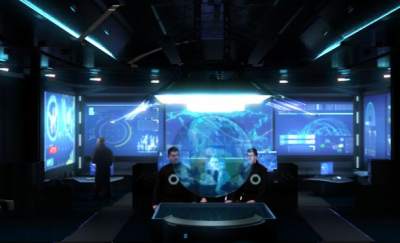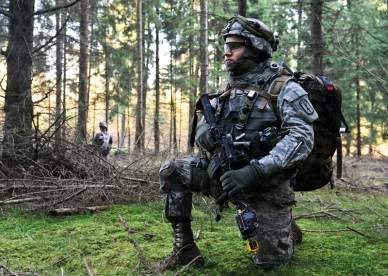The North Atlantic Treaty Organization (NATO) is optimizing the dissemination of intelligence data, while simultaneously improving the protection of alliance networks.
According to Navy Adm. James G. Stavridis, the specter of cyber-warfare against NATO members has grown in recent months, as digital attackers stand ready to cause critical damage to military networks.
As such, NATO is attempting to reach a delicate balance between the concepts of “share to win” and “need to know.”

“Life is not an on or off switch. In other words, we can’t just open everything up or shut everything down – although that is the tendency in moments of crisis,” Stavridis told the DoD’s AFPS.
“[For example], as a result of WikiLeaks, we will move that dial back a bit, more to the ‘protect’ side, but I think it is very important that we don’t overreact to it and simply shut down into international enclaves and cut off sharing. It would be massively counterproductive.”
Rather, says Stavridis, NATO will focus on bolstering its technical arsenal to better protect information and networks.
“We’ve got to use all the technical means at our disposal to protect ourselves from something like WikiLeaks or any other attempt to intrude, manipulate, move data or reveal classified secrets.

“[Of course], there’s a policy side to it, which is deciding where the dial goes, and there’s a technical side to it, and we’re very working very hard to put those in place.”
Stavridis also emphasized that an especially brutal cyber-attack may very well trigger a response in accordance with Article 5 of the NATO Charter, which considers an attack on any single member an attack against the entire alliance.
“When you come into my networks and are manipulating my air traffic control data, and you are causing airplanes to be unable to land and they crash and people die…[Now], that’s [clearly] an attack.
“[Still], the alliance has to define this [threat of cyber attack] and understand the policy questions raised by [it]. [And] that’s what we will do now that we have the focus that’s afforded by the strategic concept.”






